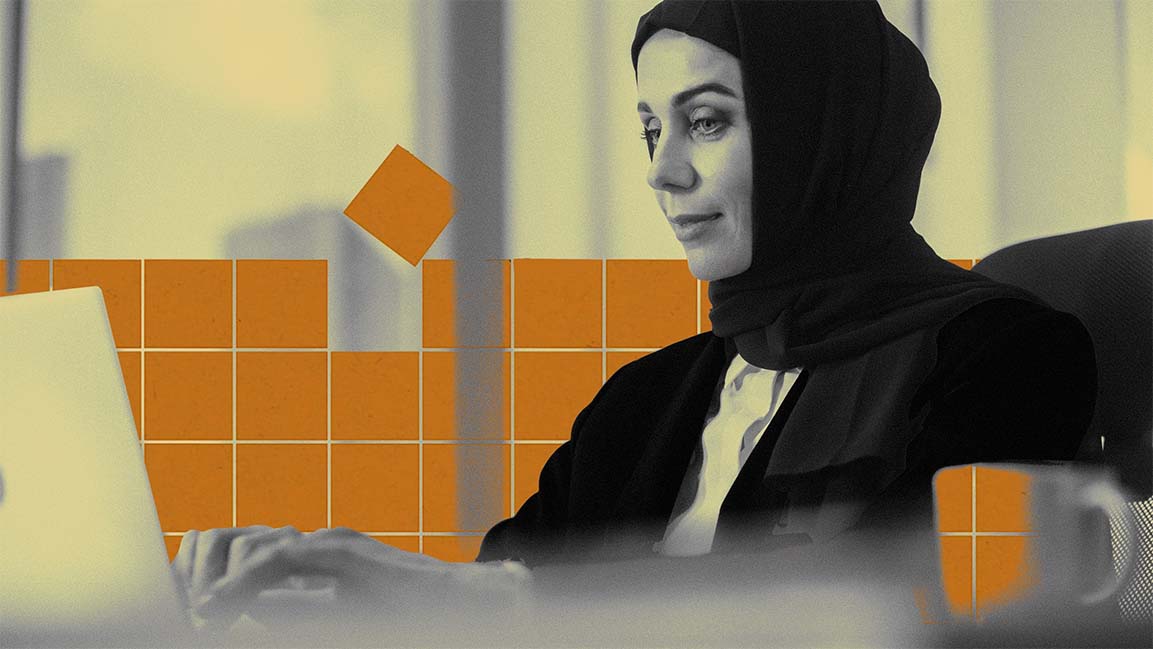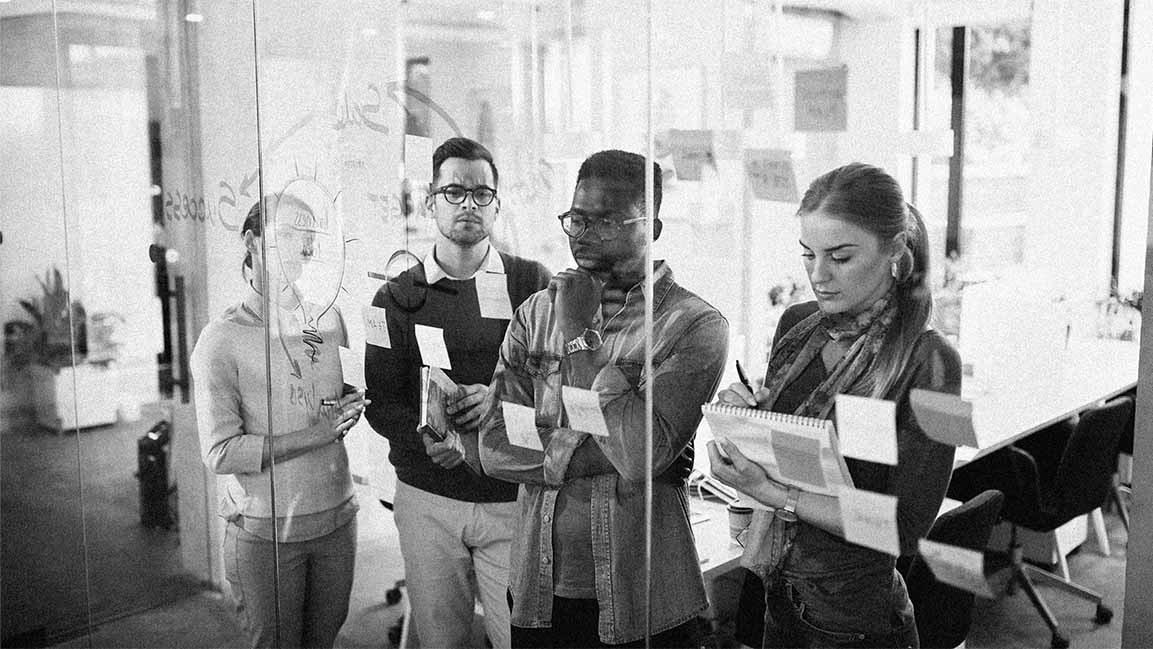- | 9:00 am
Women in the Middle East are becoming entrepreneurs. Here’s why
Experts say many Arab women choose entrepreneurship due to the dearth of leadership positions and the rigid organizational structures.

“I would like to be my boss and not let anyone else decide on my maternity leaves, appraisals, and why I should or shouldn’t be hired,” says Ferwa Khalil, a 26-year-old fashion consultant based in Lebanon.
Khalil is not the only woman who feels being an entrepreneur can be the best bet for women fighting against gender stereotypes in the workplace. Emma Burdett, the founder of the female networking platform WILD, says many women now want to be their boss. It gives them the freedom to live life on their terms and build impact-driven businesses.
“Given the trend of women choosing to work for themselves and the dearth of female role models in the workplace, it is no surprise that more women are becoming entrepreneurs,” says Burdett.
Just 33% of Saudi Arabia’s workforce is women. The number is around 15% in Egypt, 24% in Lebanon, 25% in Kuwait, and 26% in Oman.
However, according to the IFC, since the tech industry is still relatively new in the Arab world, there is no legacy of it being male-dominated.
Therefore, one in every three tech firms in the Middle East is headed by women, much higher than in Silicon Valley.
“Remarkably, women own about one-third of liquid capital in the GCC. Their striving towards financial independence and influence is notable everywhere. Entrepreneurship is maybe the biggest facilitator of this change and has increased in significance for bringing women into investment and other senior roles in the private sector,” says Shirley Shahar, co-founder of Dana Global, an Abu Dhabi-based venture builder and investment platform that supports women-led startups.
Mastercard Index of Women Entrepreneurs 2021 report reveals that more women are starting businesses in UAE, Saudi Arabia, Jordan, Morocco, Algeria, and Lebanon. According to the report, 87% of Saudi Arabia’s female business owners started companies to raise their financial independence.
“Female entrepreneurship is driven partly by wanting freedom around schedules. In some countries, it is more difficult for a woman to work with male counterparts,” says Ambar Amleh, managing partner at Palestine-based Ibtikar Fund.
“If you are running your own business and working from home, you have the independence to pick up your kids from school and do everything a mother might need to do. It gives flexibility and financial independence.”
GENDER-BASED BARRIERS
“I once spoke to a high-school friend who wanted to start her jewelry business but was very disheartened. Her family had told her that women don’t take such risks in life. I could see she did not believe that, neither did I. But when you’re told something all your life, it becomes your inner voice,” says Shenin Hamid, founder and CEO at Inspire Group.
However, Hamid adds that she can now see how this generation of strong Arab women is breaking that pattern by stepping out regardless of what they’ve been told. She says now women are speaking with freedom and security to the next generation.
The pandemic has mostly led to them changing their career direction altogether, says Burdett. “Post-pandemic many resigned and yearned for greater independence.”
When a crisis strikes, women commonly experience greater setbacks than men, as they earn less, hold more insecure jobs, frequently have irregular hours, and lack employment contracts. The pandemic was no exception; many women lost their jobs. And according to Amleh, perhaps because of this insecurity, women are at the forefront of entrepreneurship to support their families.
“Due to the slow pace of gender equality, few leadership positions for women, inflexible workplace structures, and a lack of female role models in the workplace, women are becoming entrepreneurial,” Burdett says.
Several obstacles prevent women from fully participating in the workforce, according to the World Bank, including low levels of education, unfavorable gender norms that restrict mobility, gender-based violence, and unpaid care work and household duties that make women’s labor invisible.
“We have seen that women across the region are indeed venturing into self-employment, entrepreneurship, and social enterprise to navigate remaining inequalities in economic inclusion,” says Haifa Al Kaylani, president and founder of The Arab International Women’s Forum.
“Barriers women face in the MENA, related to pay gap, progression, and promotion disparities, entrenched policies and workplace practices on parental leave, are universal. They are experienced by women everywhere, in every region of the world,” Al Kaylani adds.
According to experts, in the Middle East, entrepreneurship is attractive for women who have grown up with technology and social media. They have ideas, ambition, drive, and determination to startup and scale-up businesses.
“Entrepreneurship is a way forward for women in a region. They have long been held back by the unequal care burden and wider social and economic disparities that we are now seeing fall away with this new generation of young Arab women entrepreneurs,” Al Kalyani says.
A CHALLENGE DESPITE INCREASING PARTICIPATION
Entrepreneurship is not easy, but such is the life of any entrepreneur, according to Katie Wachsberger, co-founder of DANA Global. “The responsibility and time commitment are very demanding, but women are specially cut out for these roles. We are naturally gifted with multitasking abilities, tend to be more organized, and disciplined regarding financial management.”
“Unfortunately, fundraising is still challenging for women, despite positive changes, because we lack female investors in the region,” Wachsberger added.
Entrepreneurship in the MENA is an untapped source of growth. And female entrepreneurship, according to Al Kalyani, is challenging.
Amleh says that compared to men, women are more careful with their money. Female-run companies may grow slower, but they are more sustainable because finances are in better shape.
“Most venture capitalists (VCs) favor male entrepreneurs, meanwhile, when comparing businesses that have developed dramatically over the past year to those that have grown much more slowly but gradually.”
According to Amleh, fewer women VCs, angel investors, and decision-makers are hurdles for women entrepreneurs.
Women entrepreneurs can help build the strongest economy and need to think big, say experts. “Women as entrepreneurs need to think bigger. There will be risks, but there is no reason why men are thinking of fintech ideas and women are not,” says Amleh.
It all boils down to ensuring that women are represented in investment committees, in partnerships for funds, encouraged to be angel investors, and a part of the ecosystem, adds Amleh.








































